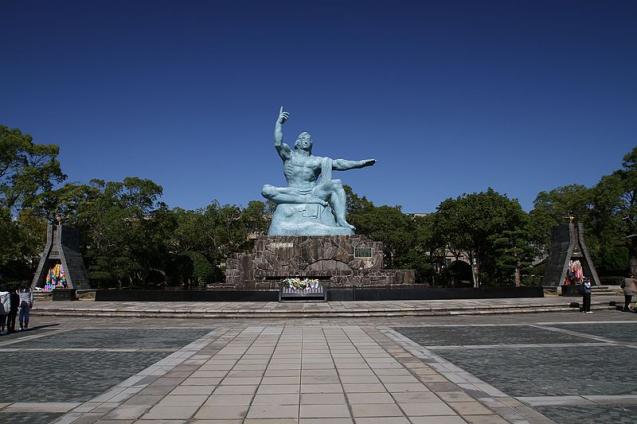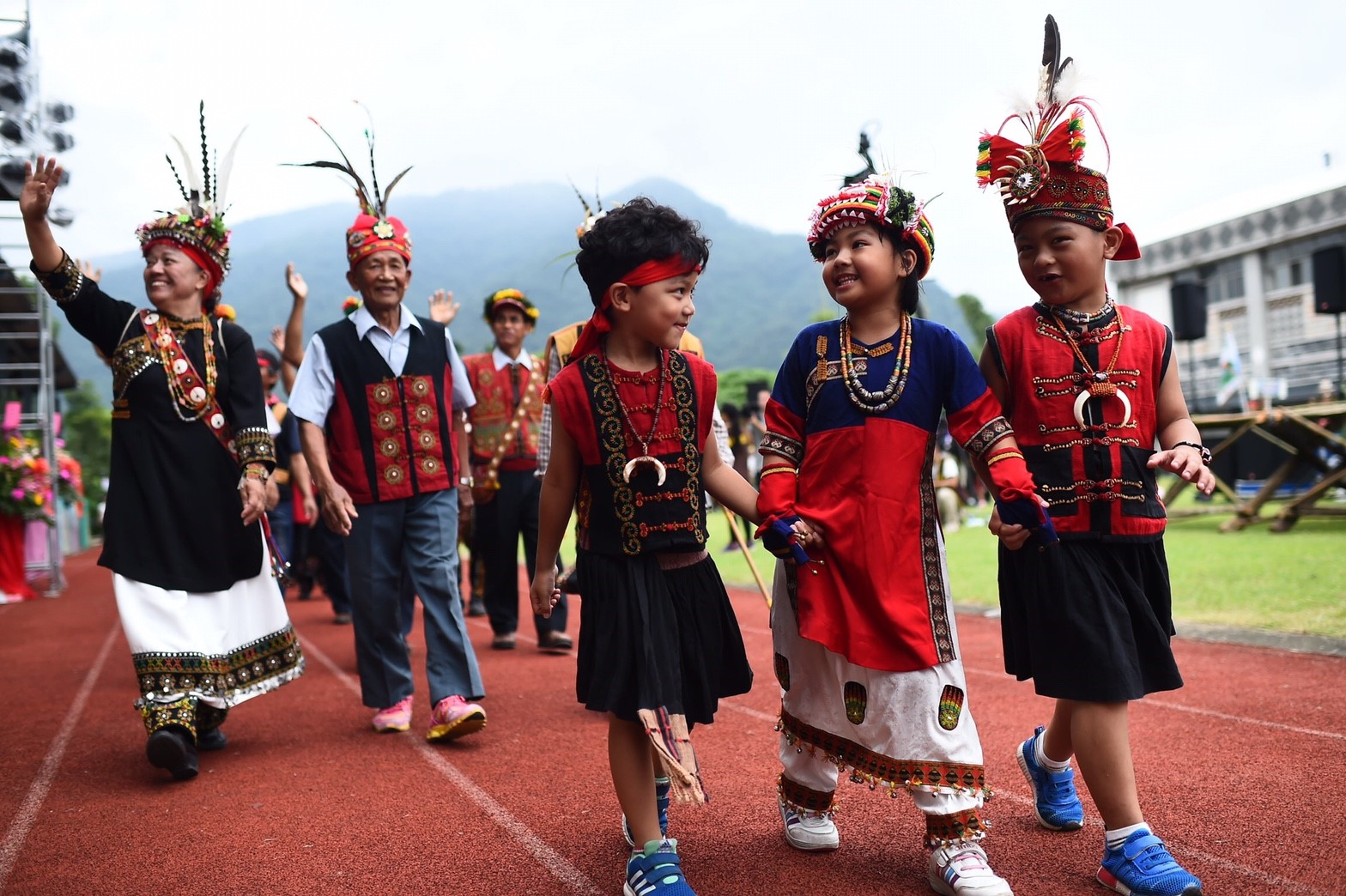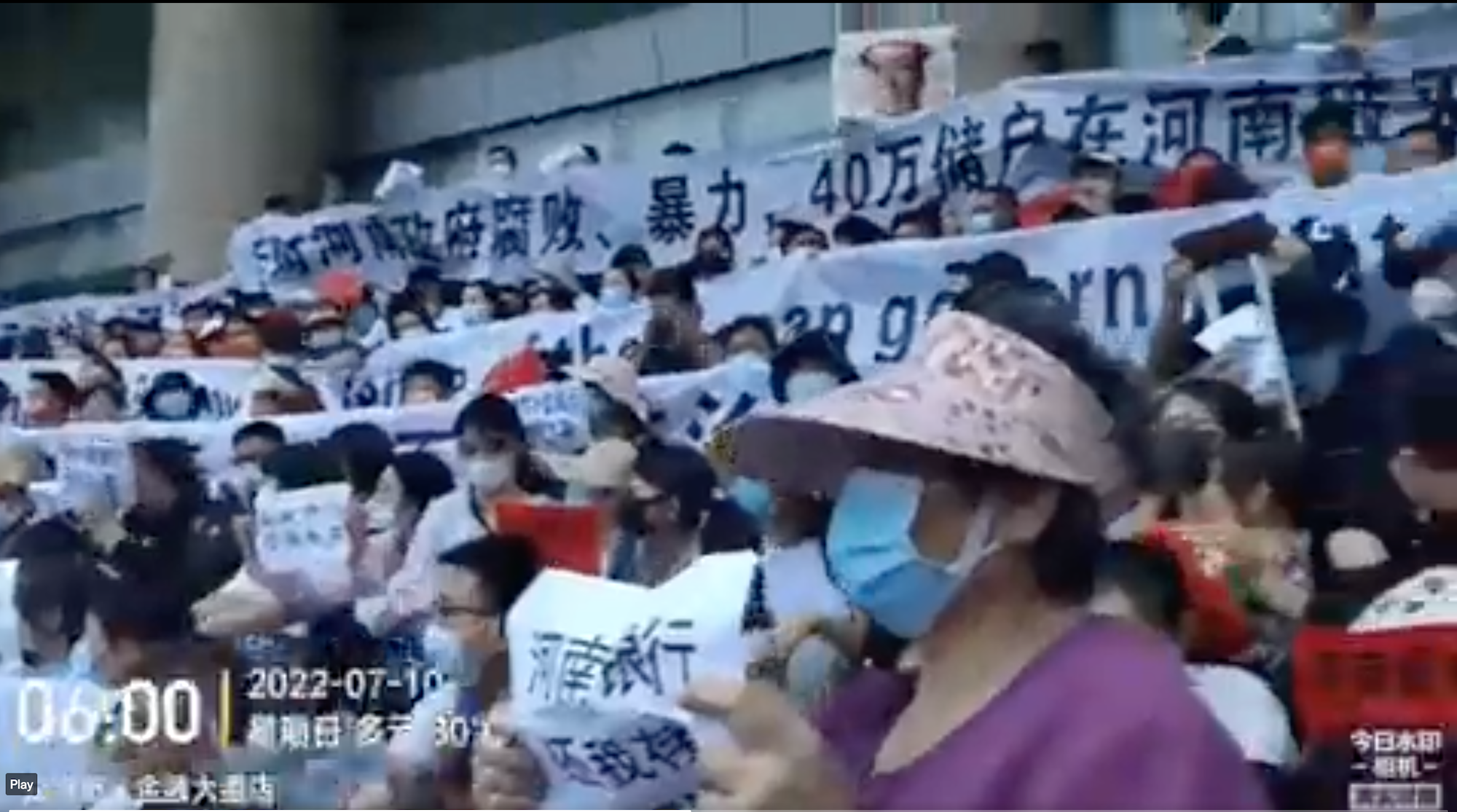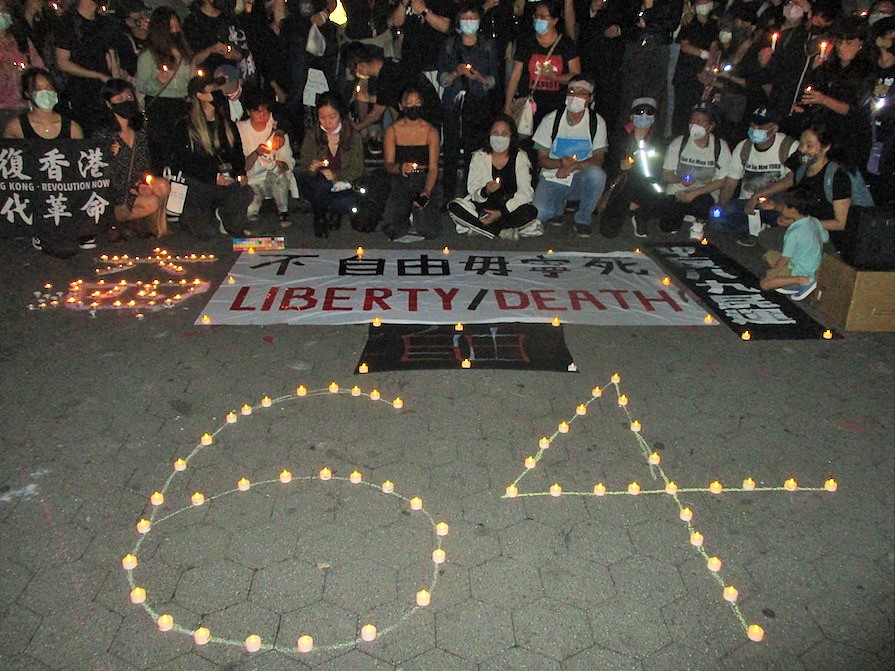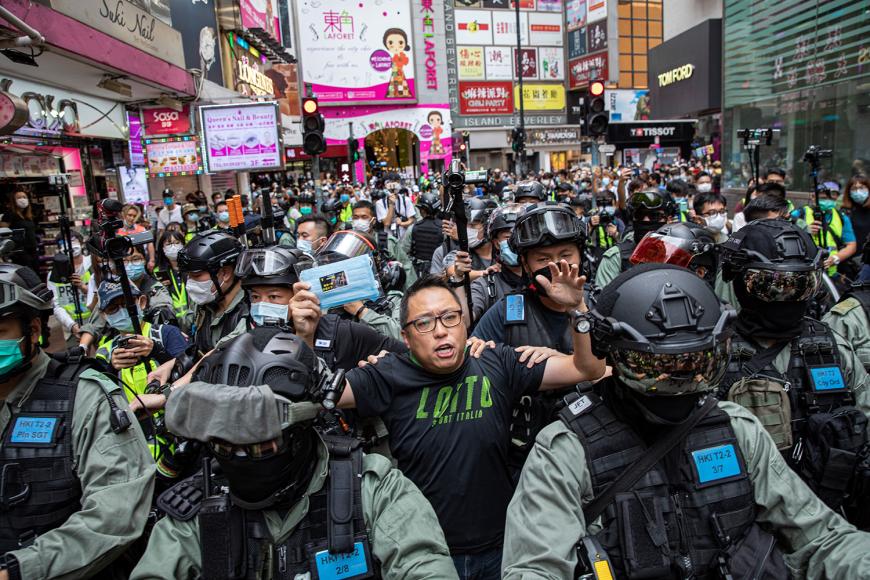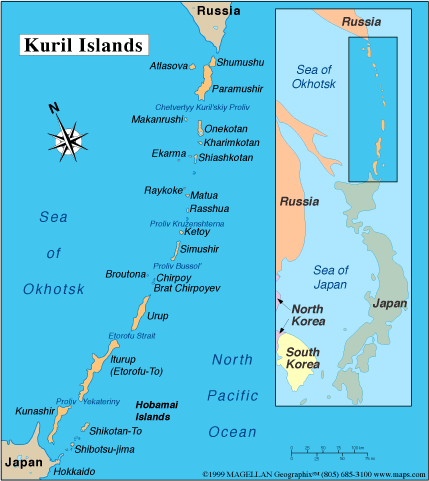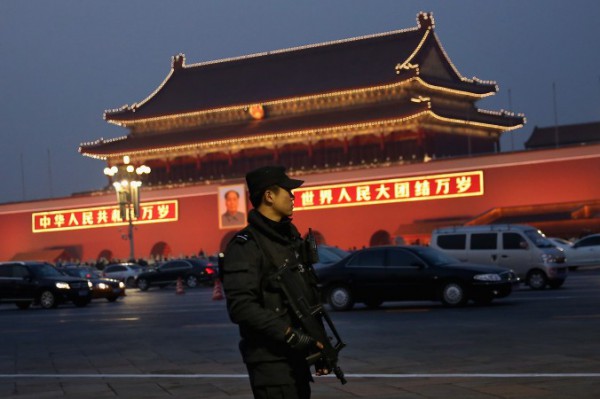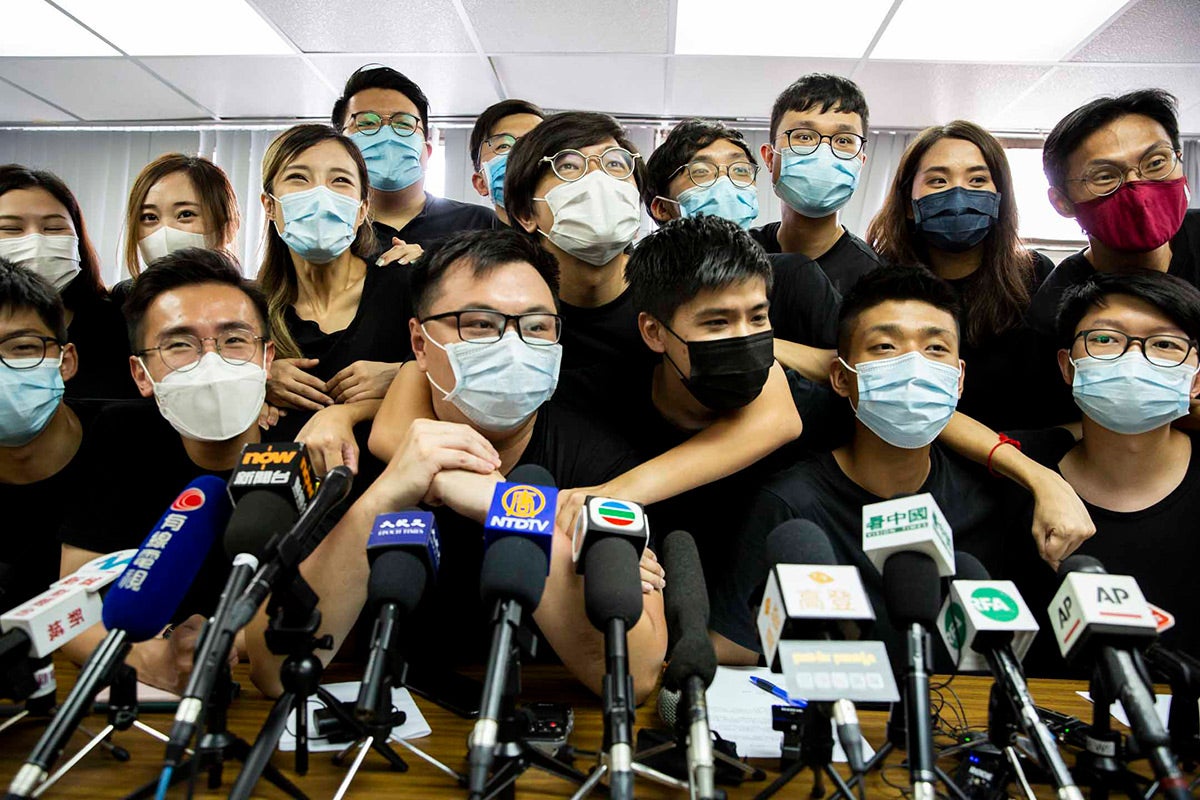
Demand release of Hong Kong 47
Human Rights Watch published a call for Hong Kong to end its unfair trial practices against 47 lawmakers and activists charged under the National Security Law imposed in 2020. After the media ban on coverage of the cases was lifted, the prosecution named five of them as “major organizers”—Benny Tai, a legal scholar; Au Nok-hin, ex-lawmaker; Chiu Ka-yin and Chung Kam-lun, ex-district council members; and Gordon Ng Ching-hang, an activist. In these cases, the prosecution is calling for harsh sentences including life imprisonment, saying that they sought to “paralyze the operations of the Hong Kong government.” Calling for the dropping of charges against the 47 and for their immediately release, HRW said the crimes established by the law are “overly broad and arbitrarily applied.” (Image: Lam Chun-tung/Initium via HRW)



